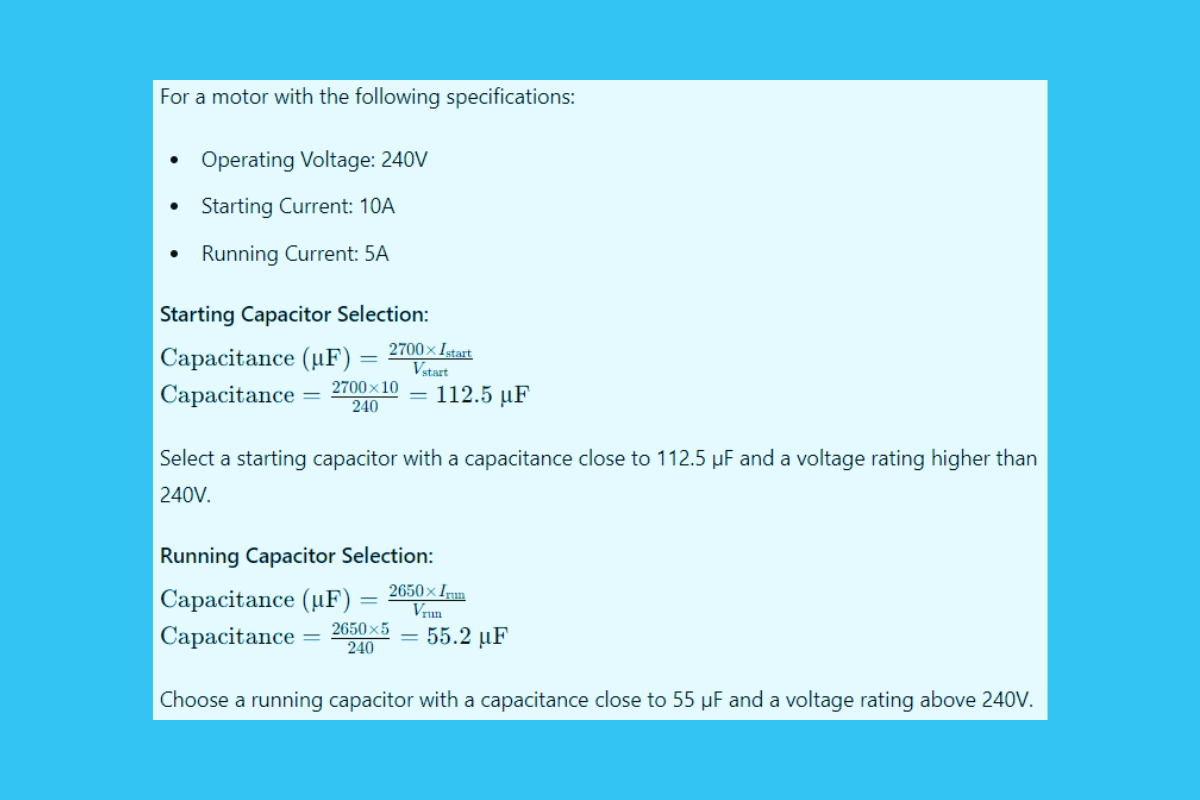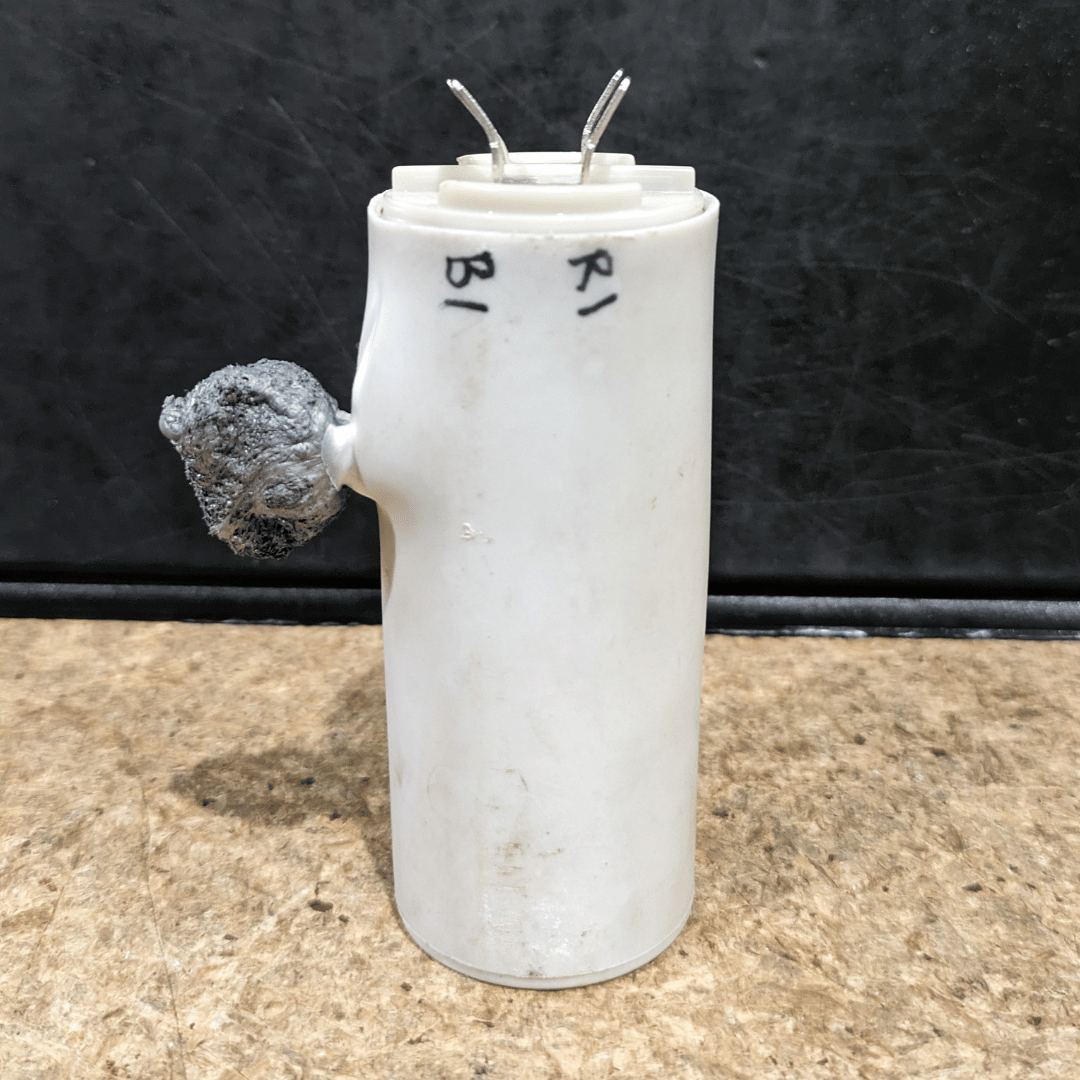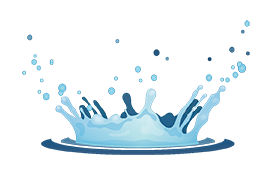Enhancing Pump Performance: The Power of Capacitors in Pumping Applications
.png)
.png)
Capacitors play a vital role in the functioning of pumps by storing and releasing electrical energy when needed. They provide power factor correction, which is crucial for ensuring smooth and efficient operation. By improving power factor, capacitors help reduce energy losses, lower electricity bills, and extend the lifespan of pumping systems.
Pumps, essential for moving fluids in industries from water and wastewater management to oil and gas and HVAC systems, are typically driven by electric motors. These motors require alternating current (AC) to function effectively, but the electrical systems powering these motors can often suffer from power factor issues. These issues lead to inefficient energy usage, increased electricity bills, and premature wear and tear on pump components.
Capacitors, passive electronic components that store and release electrical energy, can address these power factor problems. By improving power factor, capacitors help ensure that the electrical energy supplied to the pump motor is used efficiently, reducing energy losses and enhancing overall pump performance.
Capacitors consist of two conductive plates separated by an insulating material called a dielectric. When an electrical current is applied, one plate accumulates a positive charge while the other accumulates a negative charge, creating an electric field between the plates. This field stores energy, which can be released as a burst of power when needed.
In pumping applications, capacitors are particularly useful for correcting power factor. Power factor measures the efficiency of electrical energy usage in a system. A power factor of 1 indicates efficient energy use, while a value less than 1 indicates wasted energy, often as heat or reactive power.
Pumps, like many electrical devices, can have power factor issues due to the inductive nature of their motors. Inductive loads create a phase shift between voltage and current, resulting in a lower power factor. This shift increases energy losses, raises electricity bills, and can potentially damage the motor and other components.
Incorporating capacitors into the pumping system corrects the power factor, balancing the electrical system and improving pump efficiency. Capacitors provide reactive power to counteract the reactive power generated by the inductive load, bringing voltage and current back into phase, closer to a power factor of 1.
- Improved system efficiency
- Cost savings on electricity
- Reduced wear and tear on pump components
- Extended equipment lifespan
- Potential for utility incentives or discounts
Incorporating capacitors into pumping applications provides a wide range of benefits, enhancing system performance and efficiency:
1. Improved Motor Starting and Running Torque: Capacitors boost the starting and running torque of the pump motor, ensuring smooth and reliable operation under heavy loads.
2. Enhanced Energy Efficiency: By improving power factor and reducing energy losses, capacitors lower energy consumption, resulting in significant cost savings on electricity bills.
3. Reduced Wear and Tear: Increased efficiency and smoother operation extend the lifespan of the pump's components, reducing maintenance costs and downtime.
4. Increased System Reliability: Capacitors stabilize the electrical system, minimizing voltage fluctuations, power surges, and other issues that can lead to pump failures or unplanned shutdowns.
5. Compliance with Regulations: In some regions, maintaining a high power factor is a regulatory requirement. Capacitors help ensure compliance with these standards.
6. Potential for Rebates and Incentives: Utility companies often offer incentives for maintaining a high power factor. Improved power factor through capacitors can qualify pump operators for financial benefits.
Selecting the right capacitor for a pump system involves considering several factors:
- Starting Capacitor: Typically used for motors that require a high starting torque. They are designed for short-term use during the startup phase.
- Running Capacitor: Used for continuous operation to improve efficiency and power factor. They have a lower capacitance value compared to starting capacitors and are designed for long-term use.
- Start Capacitors: Values range from 70 to 400 microfarads (µF) or more, depending on the motor size and starting requirements.
- Run Capacitors: Values range from 5 to 80 µF or more, based on the motor's running needs. The specific value should match the motor manufacturer’s recommendations.
- Ensure the voltage rating of the capacitor is higher than the motor’s operating voltage. Common ratings are 370V, 440V, or higher for safety margins.
- Consider the peak voltages the capacitor might be exposed to, especially in industrial settings with variable loads and power quality.
- Choose capacitors with appropriate temperature ratings for the operating environment. Standard ratings might be 70°C, 85°C, or higher. Higher temperature ratings ensure reliability in harsher conditions.
- The capacitor should physically fit within the motor housing or the control panel where it will be installed. Check the dimensions and mounting style (e.g., cylindrical, oval, etc.).
- Opt for capacitors from reputable manufacturers with necessary certifications (e.g., UL, CE) to ensure reliability and safety.
- Look for capacitors with a proven track record of durability and performance in similar applications.
- Single vs. Three-Phase Motors: Single-phase motors often require both starting and running capacitors, while three-phase motors may use capacitors primarily for power factor correction.
- Environmental Factors: Consider environmental conditions such as humidity, dust, and exposure to chemicals that might affect capacitor performance and longevity.
 An example calculation for choosing a capacitor
An example calculation for choosing a capacitor
Proper installation and maintenance are crucial for long-term performance:
1. Correct Sizing and Placement: Ensure capacitors are sized correctly and installed for easy access and maintenance.
2. Secure Mounting: Prevent vibration damage by using appropriate mounting hardware.
3. Proper Electrical Connections: Ensure tight, insulated, and protected electrical connections.
4. Periodic Inspections and Maintenance: Regularly inspect capacitors for damage and clean the surrounding area.
5. Replacement Schedule: Replace capacitors according to manufacturer recommendations or when signs of deterioration appear.
6. Compatibility with Other Components: Ensure capacitors are compatible with the pump motor and electrical supply.
7. Compliance with Safety Regulations: Follow all relevant safety guidelines during installation and maintenance.
1. Water Treatment Facility: Improved power factor from 0.82 to 0.95 using polypropylene film capacitors, resulting in a 12% reduction in energy consumption and lower electricity costs.
2. Oil and Gas Pipeline: Electrolytic capacitors boosted motor starting torque, reducing maintenance costs by 20% and increasing pump component lifespan by 15%.
3. Commercial HVAC System: Combination of ceramic and metalized film capacitors stabilized the electrical system, improving power factor and cooling efficiency, leading to a 10% decrease in energy consumption and a 15% increase in cooling capacity.
 A customer recently brought in a capacitor that had expired
A customer recently brought in a capacitor that had expired
In the dynamic world of pumping applications, capacitors play a crucial role in enhancing performance, efficiency, and reliability. By addressing power factor issues, boosting motor torque, and stabilizing the electrical system, capacitors help achieve optimal pump performance. The benefits, including reduced energy consumption, lower electricity bills, and extended component lifespan, contribute significantly to the profitability and sustainability of pumping operations.
As demand for efficient and reliable pumping systems grows, understanding and leveraging the power of capacitors becomes increasingly important. Incorporating capacitors into pumping applications unlocks enhanced performance, cost savings, and environmental sustainability, positioning organizations for long-term growth and success. Whether managing a water treatment facility, oil and gas pipeline, or commercial HVAC system, the strategic use of capacitors is key to realizing the full potential of pumping systems.

Call us on (02) 4271 2220
email us here or complete the order form below